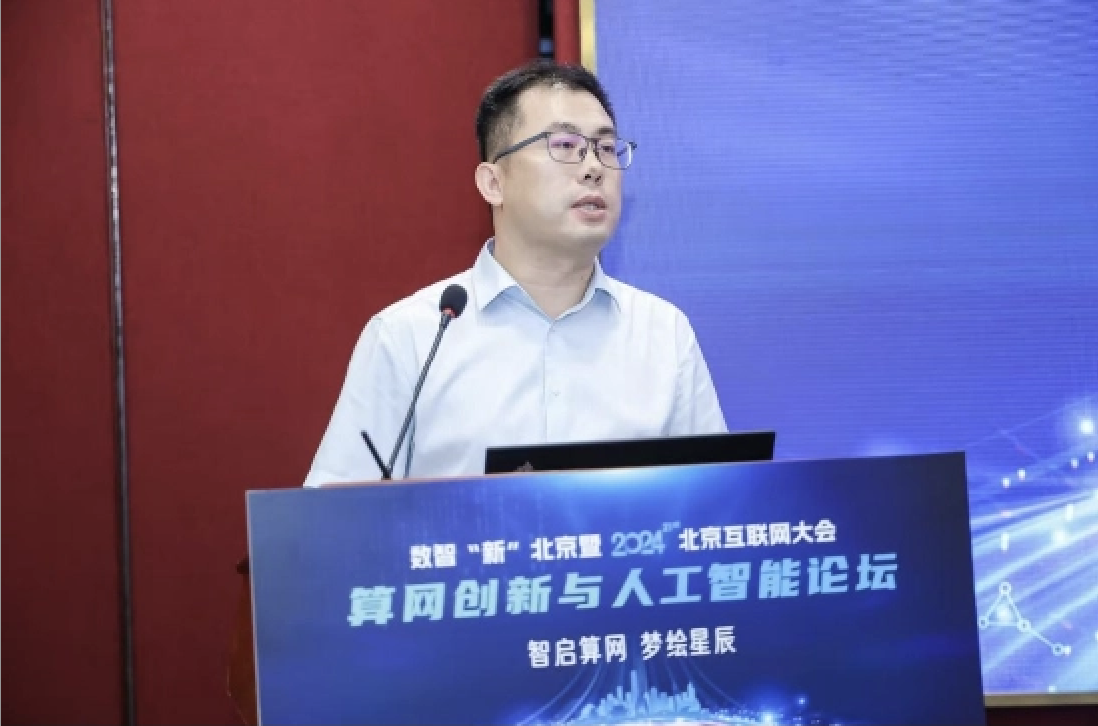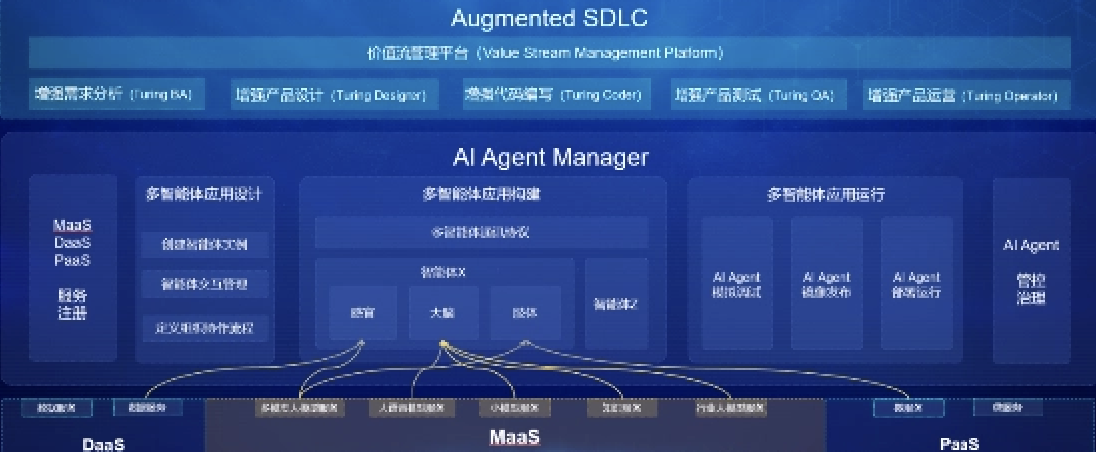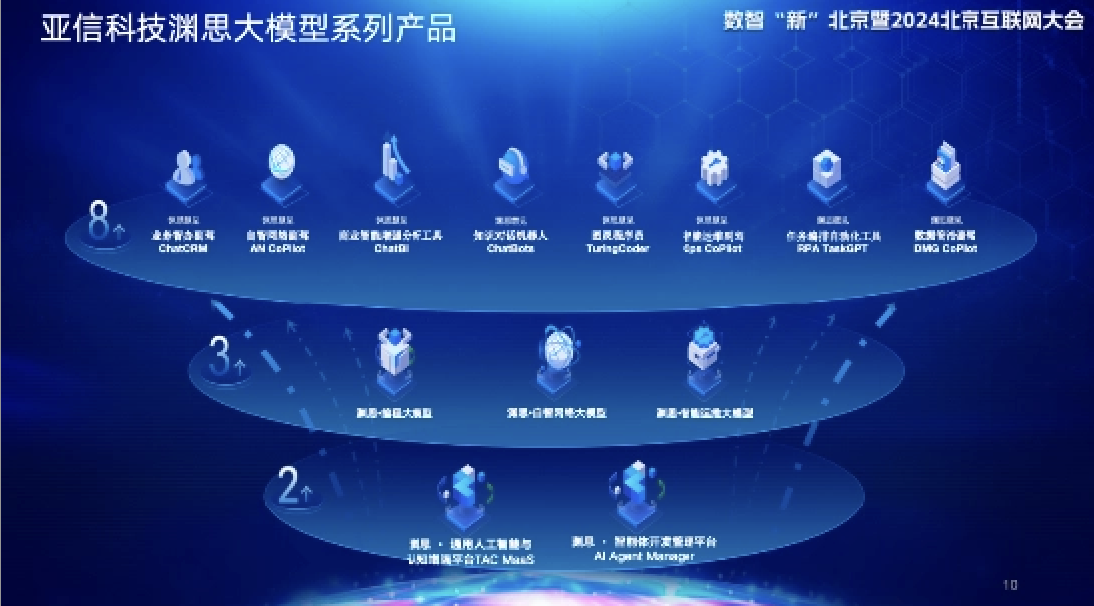2024-09-29
Recently, the “Digital Intelligence 'New' Beijing and 2024 Beijing Internet Conference,” organized by the Beijing Communication and Internet Association, co-organized by the Beijing Internet Exchange Center and Communications World Omnimedia, with Beijing Telecom as the guest of honor, was held in Beijing. Guo Feng, General Manager of DSS Solutions Department, Telecom Business Unit of AsiaInfo, was invited to attend the Computility Network Innovation and AI Forum and delivered a speech titled “Reflections on Reconstructing Software Products with AI Native Capabilities.”

Figure: Guo Feng Speaking at the Conference
Guo Feng noted that in 2023, with the continuous maturation of AGI (Artificial General Intelligence) capabilities, there has been a broader demand for better integrating AI capabilities into daily life and production. Against this backdrop, the concept of AI Native emerged.
To comprehensively and effectively address the challenges faced by enterprises in their digital intelligence transformation, AsiaInfo, in collaboration with Tsinghua University and Intel, jointly released the “White Paper on Reconstructing Software Products with AI Native Technology,” systematically elaborating the viewpoints and practices of building AI-native applications based on industry foundation models. The white paper stated that AI Native represents a methodology and technological framework centered on AGI for reconstructing digital systems. Based on the capabilities of current foundational big models, AI Native reconstruction primarily focuses on man-machine interaction, process experience, decision-making control, operation execution, iterative upgrades, etc.
Taking into account industry expectations for AI Native applications and the three key factors influencing the reconstruction of software products with AI Native, AsiaInfo presents an AI Native solution enabling users understanding the technology framework, which comprises a Model-as-a-Service (MaaS) platform for providing AGI services, a Multi-Agent System (MAS) for reconstructing existing applications based on MaaS platform capabilities and optimizing task execution through man-machine collaboration, and an enhanced Software Development Lifecycle (SDLC) that integrates AI capabilities throughout the development process to enhance R&D efficiency.

Figure 2: AI Native Architectures
Guo Feng emphasized that the primary obstacles hindering the widespread adoption of big models in vertical industries include the lack of unified takeover, which leads to redundant construction and the scarcity of quick deployment methods and tools. With 31 years of experience in numerous projects, AsiaInfo has taken into account factors like “industry-specific, data security, continuous iteration, and comprehensive cost” based on real-world scenarios in vertical industries such as telecommunications, government affairs, energy sources, and transportation, focused on three levels - “platform, model, and tools” - to establish an XGPT product system for industry cognitive enhancement, which involves building two big model capability foundations, training three industry-specific models for specific industries, and providing eight out-of-the-box cognitive enhancement tools. AsiaInfo's industry foundation model, designed exclusively for particular industries, focuses on three core values: “industry cognition enhancement, tool ecosystem construction, and model-as-a-service system.” By deeply integrating with application scenarios and fully considering customers' needs, these models provide customers with “one-stop” big model deployment and application services, accelerating the digital intelligence transformation of industries.

Figure 3: AsiaInfo's Yuansi Big Model Product System
Currently, AsiaInfo's Yuansi big model platform and tools have been widely put into implementation across various industries, with over 100 successful cases to date.
The era of industry digital intelligence has arrived, with big models taking the lead in this trend. In the future, AsiaInfo will collaborate closely with industry-university-research partners to enhance its “product + service” system and continue to provide efficient and user-friendly “full-stack AI” to government and enterprise customers across various industries.